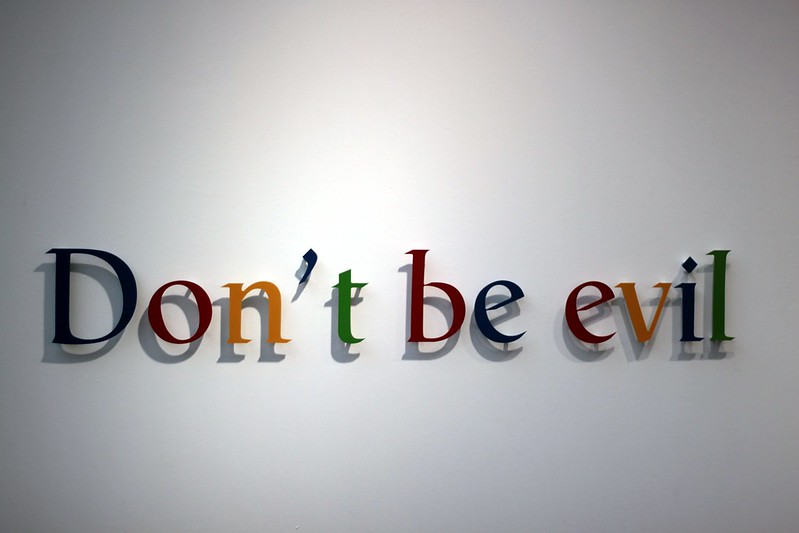When a single company holds the vast majority of the market, they call it a monopoly. And such a phenomenon should be prevented or resolved by various regulatory bodies. In 2014, with all of a sudden AI development, it looked like Google’s real competitor was nowhere to be found.
To be honest with you, it was a shock to me when the federal court appeared to be somewhere higher than Google was (sic!).
This article writes about its dubious creation, dubious fines, why Google didn’t have a real competitor, and how things turned this way.
The dubious creation of Google
Tons of interviews were made and tons of books were written about the alleged “inventors” of the biggest start-ups. However, the reality lies somewhere else.
Imagine the US as a country completely controlled by a few super-rich groups. Some of them are very close to secret services apparatus that has tens of financial resources than admitted.
The super-rich and secret services want to have information about every single citizen because he may become an influential politician, powerful adversary, influential person, or spy.
So it is kind of unimaginable that they would allow the biggest tech startups to be led by rebellious and defiant people because they could reveal who really runs the country or make such moves that would lead to destabilizing their patron-client system. Owning such companies is sensitive so the establishment must control them.
Politics is everywhere: Who needed Google to be a monopoly?
There are noticeable super-rich patron-client systems ruling the US. Some of the super-rich are close to the security apparatus.
It penetrates to the Big Tech where the aforementioned have their stakes. So simple power (and money) constellations and satisfaction with how Google is spying on us (they cannot sue me) may be the key to understanding why some other super-rich group won’t create a competitor so all the customers would benefit.
AI, operational systems, and software are designed to spy on us. They rather give us a new version for free to make sure the particular technological piece would fit Big Brother.
What about all the previous fines? Just politics!
Some people say the regulatory bodies just play a big game and that the fines are given accordingly.
Google has faced substantial fines over the years from various regulatory bodies, particularly from the European Union. Notable instances include a €2.42 billion fine in June 2017 for abusing its market dominance with its shopping service, a record €4.34 billion fine in July 2018 for using its Android mobile operating system to reinforce its search dominance, and a €1.49 billion fine in March 2019 for restrictive practices in online advertising. Additionally, France fined Google €50 million in January 2019 for GDPR violations, and in the United States, Google agreed to pay $391.5 million in June 2023 to settle a privacy lawsuit involving location tracking practices.
Are we playing a fair game? Rather no! So much power and money
The background constellations may have moved in a way we hadn’t expected. Some groups may have liked to gain their own data or background groups just considered those behind Google too powerful, or wanted their “share” of money.
Who will collect this data? Which software will be predominantly spying? Is Microsoft Office working on Mac? They should be competitors! Now you can see it is just power brokering and huge power play where huge stakes of money are involved.
Google’s real competitor as a possibility
We don’t know what exactly will happen. What we know so far is that power constellations are changing, and billions are at stake.
I cannot omit one possibility: everything is clear and there were no dubious influences. I am not inclined to this possibility. But if it is this way, it would mean at least something of the clientelism and corruption-ridden America works.

Leave a Reply